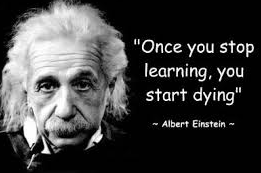I recently posed on Twitter, as well as FTF, my proposal to pay teachers $100,000 per year. Naturally, I got a mix of reactions mostly asking how, why and what for? Beyond figuring out the finances (which I admit is a daunting task), what would be the rationale(why) and the expectation(what for)? Well, here you go:

The reality is that too many young people, who are educated and career focused, are not seeing teaching as a viable career option - either financially or professionally. Many have the chance to pursue other career options that more than likely will initially and long-term pay better, as well as offer more autonomy, creativity and mobility. At least that is their perception. We have faced teacher shortages before, but none at this current level in terms of new people entering the career. There are many indications of a new, globalized economy and this could be one of them: smart, creative, innovative and educated people do have options. And currently, teaching is not seen as one of them - at least to many of them.
So, to fix this problem we will have to naturally figure out ways to make the professional more attractive. There are many ways to make working for an organization, or a profession, more attractive. However, in a competitive environment, nothing may matter more than financial compensation, especially if you have college debt. The idea of offering more money to get teachers may seem unusual or strange, but make no mistake it’s already happening. For example, many school districts have recently offered signing bonuses for teachers to sign with their district. During a shortage, districts have to compete. It’s a seller’s market and teachers now have, in many cases, more than one choice on where they teach or work.
But the idea of paying teachers considerably more than they make now is not just based on attracting them to the profession. It’s also about keeping them in the profession. We’ve all seen dozens of reports that about half of all teachers quit the profession within five years. And even if this is statistically exaggerated, or inaccurate, even 25% is too many. We can’t sustain professional growth and development this way. And if fewer are entering the profession, these numbers will have an even larger impact.
However, what I mean by all of this is that we need to transform the job. If we pay teachers what they deserve (and believe good ones are worth more than we could ever pay), we can truly redefine the profession - and ultimately the experience for our students.
All of us have known for a long time that great teachers do a whole host of things naturally. The problem is that many of these things are left up to those that choose to be great. We’ve allowed great to be an option and not an expectation. And the great ones have done this without compensation from the system. Indeed, they often have to work around the system in order to be great and serve students.
As we know, the world is in the process of dramatic change and transformation. Our students truly need a new type of educational experience. It is going need to be one that is more specialized, technical, creative, innovative, personalized and dynamic. In order to do that, we need teachers who are going to accept and embrace a new professional challenge. And here it is:
The Expectation
We have struggled for years to define what an “exceptional” teacher really looks and acts like. Let’s not dance around it and redefine it for this new economy and educational demands. Again, let’s acknowledge that the majority of teachers are hard working, sincere folks who have the best intentions in mind. However, we also know that the sometimes cliched teacher, often portrayed in modern culture through films and TV as a quintessential government employee - more concerned with their own rights vs. student success - does exist. So, let’s lay out the expectation of a successful and well-compensated 21st century teacher. Here is at least the start of a list (feel free to add on or amend):


The Rationale
There has been a dramatic decline for years, each year now, in the numbers of people choosing to enter teacher credentialing programs and ultimately the teacher profession. As an example, enrollments in teacher preparation programs in CA have declined by 75 percent over the past decade – from 77,700 in 2001-02 to 19,933 in the 2012-13 school year, the last year for which figures are available ("New California Teaching Credentials Decline for 10th Successive Year." EdSource. N.p., n.d. Web. 20 Nov. 2015.). The reality is that too many young people, who are educated and career focused, are not seeing teaching as a viable career option - either financially or professionally. Many have the chance to pursue other career options that more than likely will initially and long-term pay better, as well as offer more autonomy, creativity and mobility. At least that is their perception. We have faced teacher shortages before, but none at this current level in terms of new people entering the career. There are many indications of a new, globalized economy and this could be one of them: smart, creative, innovative and educated people do have options. And currently, teaching is not seen as one of them - at least to many of them.
So, to fix this problem we will have to naturally figure out ways to make the professional more attractive. There are many ways to make working for an organization, or a profession, more attractive. However, in a competitive environment, nothing may matter more than financial compensation, especially if you have college debt. The idea of offering more money to get teachers may seem unusual or strange, but make no mistake it’s already happening. For example, many school districts have recently offered signing bonuses for teachers to sign with their district. During a shortage, districts have to compete. It’s a seller’s market and teachers now have, in many cases, more than one choice on where they teach or work.
But the idea of paying teachers considerably more than they make now is not just based on attracting them to the profession. It’s also about keeping them in the profession. We’ve all seen dozens of reports that about half of all teachers quit the profession within five years. And even if this is statistically exaggerated, or inaccurate, even 25% is too many. We can’t sustain professional growth and development this way. And if fewer are entering the profession, these numbers will have an even larger impact.
However, what I mean by all of this is that we need to transform the job. If we pay teachers what they deserve (and believe good ones are worth more than we could ever pay), we can truly redefine the profession - and ultimately the experience for our students.
All of us have known for a long time that great teachers do a whole host of things naturally. The problem is that many of these things are left up to those that choose to be great. We’ve allowed great to be an option and not an expectation. And the great ones have done this without compensation from the system. Indeed, they often have to work around the system in order to be great and serve students.
As we know, the world is in the process of dramatic change and transformation. Our students truly need a new type of educational experience. It is going need to be one that is more specialized, technical, creative, innovative, personalized and dynamic. In order to do that, we need teachers who are going to accept and embrace a new professional challenge. And here it is:
The Expectation
We have struggled for years to define what an “exceptional” teacher really looks and acts like. Let’s not dance around it and redefine it for this new economy and educational demands. Again, let’s acknowledge that the majority of teachers are hard working, sincere folks who have the best intentions in mind. However, we also know that the sometimes cliched teacher, often portrayed in modern culture through films and TV as a quintessential government employee - more concerned with their own rights vs. student success - does exist. So, let’s lay out the expectation of a successful and well-compensated 21st century teacher. Here is at least the start of a list (feel free to add on or amend):
Lifelong learner - this is an old idea that not all have embraced. Well, we’ll need to require this. All teachers will, each and every year, continue to collaborate and learn with their colleagues. This will not be an option, nor will it cost them anything. We need to pay for and provide regular opportunities (so many hours per year) to attend professional events, take FTF or online courses, work with one another and industry professionals on projects and planning, and more. One can’t opt out. Teachers will have choices on how to meet the requirement and there will be no out of pocket expenses. All teachers will have to be leaders in some aspect of their profession and not only participate in lifelong learning, but also lead aspects of it as well. All teachers will need to help train and lead other teachers. That is real lifelong learning.
True Collaboration - the days of hiding out in a classroom and working in isolation are gone. No other professionals can do it and teachers are no exception - especially if you are being compensated appropriately. Teachers will have to not only collaborate with their on campus or school-based peers and colleagues, but also with professionals. They will have to regularly work with business leaders, community leaders, parents, government officials, politicians and others on how to serve their students through projects, community-based work and more. All teachers will have to have Professional Learning Networks - again online and FTF. All professionals in other industries know this and embrace this in order to be successful. Again, teachers cannot be the exception. Again, time during the school year and in summer will be created to do this. And again, they are being compensated properly to do so.


Works Cited
"New California Teaching Credentials Decline for 10th Successive Year." EdSource. N.p., n.d. Web. 20 Nov. 2015.
(images courtesy of Foter)
Leading and Facilitating Entire Learning Experiences - all students need at least one go-to mentor and advisor. Naturally, more than one is even better. But all teachers will be expected to have a caseload. For elementary teachers, this is your class and you’re essentially use to do doing this. For HS folks, many of you have seen this before with things like an advisory period. But we have to go way beyond a cursory advisory period. All teachers need to have a caseload of students that they have an extended role for throughout the student’s educational career. In HS, for example, all teachers need to have a group of 25 students that they are globally responsible for during the four years. This responsibility includes advising, counseling, mentoring, tutoring, home and family communication, career advising, internship and externship coordination and more. Some of this work has been handed off to others not in the classroom. Their positions may be reduced to help pay the $100,000 per year so teachers will have to assume the role. Many, including HS teachers, have already been doing this forever. But now, it’s an expectation of all and they will be paid to do so.
Extended Work Time and Planning - the idea of three months off - without planning and creating for your students for the next year and beyond - will now be part of the past. Again, most teachers, especially the great ones, have been working in the summer - on their own time and dime - forever. Well now, they are being paid to do this. The new economy will need teachers who stay connected to one another and their communities over the summer. They will need to plan relevant, real world and engaging projects and learning experiences for all of their students. This will take time and cannot be done in its entirety during the school day and school year. This will take summer time as well. How long? I don’t know. But all teachers will have to work an extended summer contract. This won’t really be an option. But again, you’re getting paid at least $100,000 to do so. While we’re speaking about time, let’s not pretend that one can get this job done between the hours of 8 and 3 each day. Let’s have teachers on campus from 7:30 - 4:30, or something like that. Let’s have teachers on campus the entire work day so they can collaborate, meet with community and parents, etc.
In summary, this is naturally unfinished. Like most ideas with potential, it needs revision and refinement. However, compare this to our eternal struggle (s) going on now with this profession and the product (s). Additionally, I know we have not figured out out the math and how to pay for this (however it was eluded to momentarily earlier). But I guarantee you that the money is there. Anyone in education knows that it is. It will take a serious redesign of all positions (top to bottom) in order to find the money. But, rest assured, it’s there. Meanwhile, we are stuck with a system that doesn’t work for many and will continue to struggle in finding the next generation of teachers. Works Cited
"New California Teaching Credentials Decline for 10th Successive Year." EdSource. N.p., n.d. Web. 20 Nov. 2015.
(images courtesy of Foter)
Thanks to recent negotiations, the high school district in which I work just increased the top rates for all teachers by about 7%. Those in the top tiers are now making just over $100,000. It's great to get such a nice raise. I know I am well paid in comparison to teachers around the California and the rest of the nation.
ReplyDeleteHere's the problem: I am somewhat frustrated that there are teachers who make the same money as I do but work far less. There really are many teachers who work their contract hours only: 15 minutes before the first bell and 15 minutes after the last bell. Some of them are even able to get most lesson planning and most grading completed within those hours.
I sometimes struggle with the planning and grading part, because of the complexity of many of the assignments. I usually do not do those tasks when I have students in the room- when we are together in class, my focus is with them- guiding, managing activities and learning and leading.
The work outside of my teaching day I do includes content creation (I revise lessons and add some new things every year), I am advisor to 2 very active (and time consuming) clubs, I participate in a school committee (professional development), I participate in 2 district committees (ed tech and NGSS transitions), I mentor (informally) and collaborate with a new teacher in my department on top of all this, I challenge myself to learn new things by attending and presenting at local conferences. Many of these things are unpaid, volunteer and yet still expected of me. Don't get me wrong- I do all of these activities willingly for the benefit of students, colleagues and my school. My work week often exceeds 50 or 55 hours per week. Our site administrators often work more hours than that due to local and district expectations of attendance of athletic events and other extracurricular activities. After all, we are all in this for the benefit of students.
Plenty of us already work super hard. But it would really be awesome to spread the work around. I recently had to put one of my competitive STEM clubs on hold for a year because I could not find another faculty member (in a school with over 150 staff members) to help. We have a year to do some background activities for the competition next year and to convince another staff member to work with me. If I cannot find someone- I will do it next year anyway with the help of my husband and some parents.
It would help us to have fewer students in our class loads. I already have about 165 students that I see every day. I would willingly mentor 20 students for their entire 4 years. I think it would keep them involved in school and continuing forward toward a positive career. Collaboration and planning could be shared if there were more teachers in the department willing to teach students with fewer (old) lecture notes and (really old) worksheets and more (updated) lab and inquiry activities that require critical thinking. We need less discussion (complaining) about 504 and IEP requirements and more sharing of real world strategies to work with all students.
I think your ideas are good. We need to work together to build the world you envision. At least in my district, we are part way there (for those teachers in the top years and educational levels). But the ones who are always only there from bell to bell need to have some adjustments. They could really help the 10-15 % of us who give so much additional time.